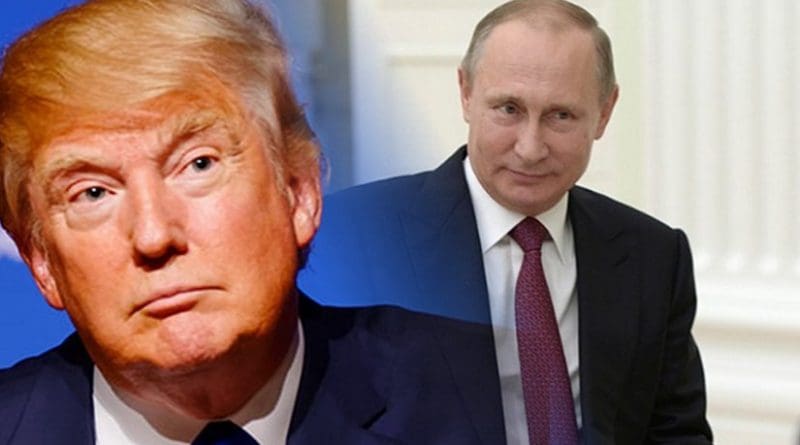The Irony Behind CIA’s Trump-Russia Story – OpEd
By Peter Certo
Even in an election year as shot through with conspiracy theories as this one, it would have been hard to imagine a bigger bombshell than Russia intervening to help Donald Trump. But that’s exactly what the CIA believes happened, or so unnamed “officials brief on the matter” told the Washington Post.
While Russia had long been blamed for hacking email accounts linked to the Clinton campaign, its motives had been shrouded in mystery. According to the Post, though, CIA officials recently presented Congress with a “a growing body of intelligence from multiple sources” that “electing Trump was Russia’s goal.”
Now, the CIA hasn’t made any of its evidence public, and the CIA and FBI are reportedly divided on the subject. Though it’s too soon to draw conclusions, the charges warrant a serious public investigation.
Even some Republicans who backed Trump seem to agree. “The Russians are not our friends,” said Senate majority leader Mitch McConnell, announcing his support for a congressional probe. It’s “warfare,” added Senator John McCain.
There’s a grim irony to this. The CIA is accusing Russia of interfering in our free and fair elections to install a right-wing candidate it deemed more favorable to its interests. Yet during the Cold War, that’s exactly what the CIA did to the rest of the world.
Most Americans probably don’t know that history. But in much of the world it’s a crucial part of how Washington is viewed even today.
In the post-World War II years, as Moscow and Washington jockeyed for global influence, the two capitals tried to game every foreign election they could get their hands on.
From Europe to Vietnam and Chile to the Philippines, American agents delivered briefcases of cash to hand-picked politicians, launched smear campaigns against their left-leaning rivals, and spread hysterical “fake news” stories like the ones some now accuse Russia of spreading here.
Together, political scientist Dov Levin estimates, Russia and the U.S. interfered in 117 elections this way in the second half the 20th century. Even worse is what happened when the CIA’s chosen candidates lost.
In Iran, when elected leader Mohammad Mossadegh tried to nationalize the country’s BP-held oil reserves, CIA agent Kermit Roosevelt led an operation to oust Mossadegh in favor of Shah Mohammad Reza Pahlavi. The shah’s secret police tortured dissidents by the thousands, leading directly to the Islamic Revolution in 1979.
In Guatemala, when the democratically elected Jacobo Arbez tried to loosen the U.S.-based United Fruit company’s grip on Guatemalan land, the CIA backed a coup against him. In the decades of civil war that followed, U.S.-backed security forces were accused of carrying out a genocide against indigenous Guatemalans.
In Chile, after voters elected the socialist Salvador Allende, the CIA spearheaded a bloody coup to install the right-wing dictator Augusto Pinochet, who went on to torture and disappear tens of thousands of Chileans. “I don’t see why we need to stand by and watch a country go communist due to the irresponsibility of its own people,” U.S. Secretary of State Henry Kissinger purportedly quipped.
And those are only the most well-known examples.
I don’t raise any of this history to excuse Russia’s alleged meddling in our election — which, if true, is outrageous. Only to suggest that now, maybe, we know how it feels. We should remember that feeling as Trump, who’s spoken fondly of authoritarian rulers from Russia to Egypt to the Philippines and beyond, comes into office.
Meanwhile, much of the world must be relieved to see the CIA take a break from subverting democracy abroad to protect it at home.
*Peter Certo is the editorial manager of the Institute for Policy Studies and the editor of Foreign Policy In Focus.

